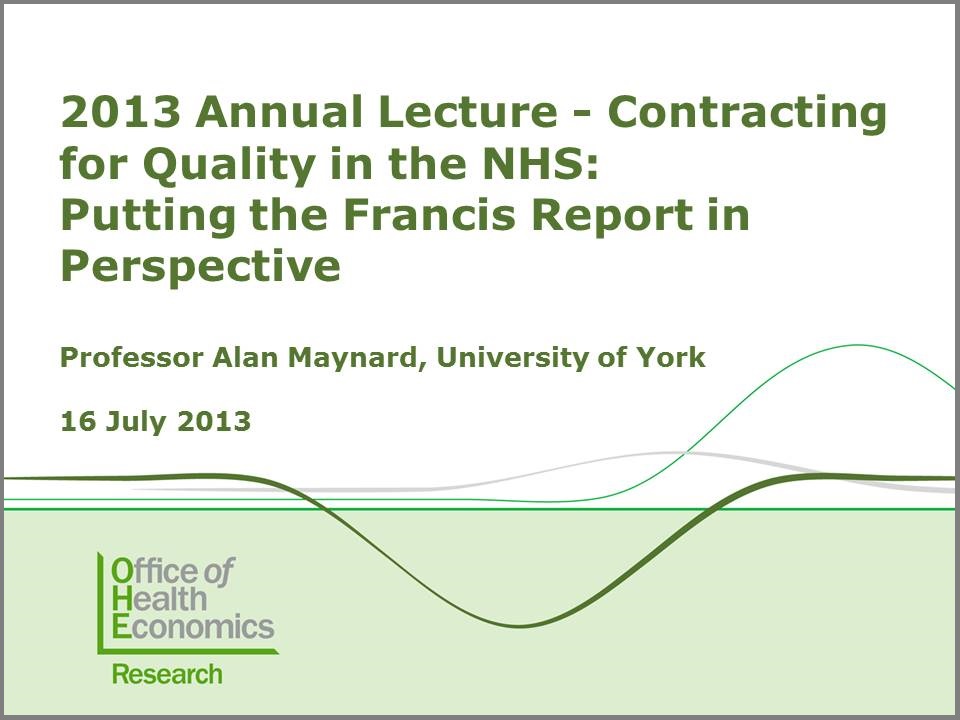The report of the Independent Inquiry into Care provided by the Mid-Staffordshire NHS Foundation Trust offers a depressing insight into the quality of care in parts of the NHS. Robert Francis QC recommended a number of unevidenced interventions, which focus on increased regulation.
What insight can we gain into NHS quality from an economic perspective? Since the 1991 NHS reforms, there has been potential for an active contracting process, but this opportunity has largely been ignored. Commissioners of health care in the NHS, like those in the private sector, have tended to be passive, accepting the quality of care provided in primary care and hospitals with little challenge.
Incentives for quality health care provision in today’s NHS are muted. Traditionally, NHS managers have been rewarded for controlling expenditure rather than ensuring quality. This focus on cost has led at times to clashes between managers and clinical professionals with managers taking the blame when NHS care has been found inadequate. Policy efforts to improve quality have tended to involve considerable expenditure increases. ‘Quality’ care of course has to take into account both costs and outcomes and in current austere financial times, the chances of increased expenditure are slim.
In this lecture, the roles of incentives and regulation in NHS contracts were explored. In a context of severely constrained budgets, how can we design and enforce contracts that ensure good quality NHS care?
Prof Maynard's presentation slides are available by clicking here. The full text of his remarks will be available as part of OHE's Annual Lecture publication series.

